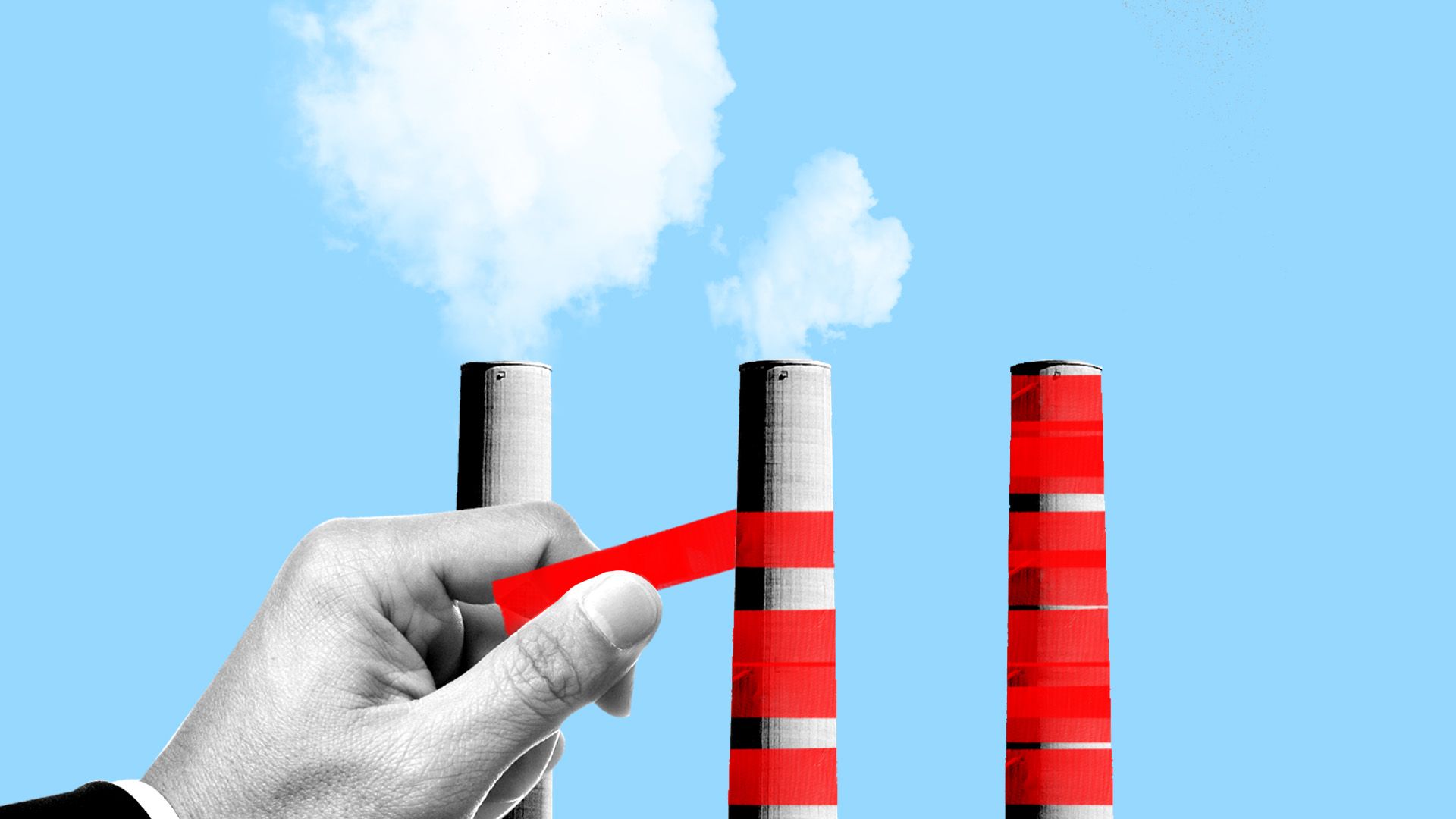Big Oil to Trump: We want global pollution regulations
Add Axios as your preferred source to
see more of our stories on Google.

Rebecca Zisser / Axios
America’s largest oil-industry groups are launching a new coalition to lobby in support of new global standards that tighten air pollution regulations for shipping fuel.
Why it matters: This is a classic example of business using regulation to gain a competitive edge over others. Many of America’s oil and refining companies have been anticipating these rules — set a decade ago by an arm of the United Nations that oversees maritime issues — and moving toward low-sulfur kinds of diesel fuel.
Details: The Coalition for American Energy Security officially launched Tuesday. Although the organization doesn't have a website yet, it has the following members and plans to grow further:
- American Petroleum Institute
- American Fuel & Petrochemical Manufacturers
- Domestic Energy Producers Alliance, which counts Continental Resources (whose CEO Harold Hamm is close to President Trump) as a leading member.
- United Steel Workers
The big picture: The global standards are forecast to increase prices of diesel, gasoline and oil prices in the coming years, according to a report released Tuesday by the U.S. Energy Information Administration, the statistical arm of the Energy Department.
- The analysis finds that the price impacts will be “most acute in 2020 and diminish over time.”
- That development — an uptick in oil prices during the presidential election year — could favor a possible attempted intervention by the Trump administration, as the Wall Street Journal reported last October.
- The new coalition says that the EIA also shows diesel, fuel and gasoline prices for consumers will be lower in 2020 than they were last year.
- Columbia University scholar Antoine Halff agreed, writing Tuesday that the increase in fuel prices due to the standards is "more than offset by downward pressures" from other factors.
What’s next: The rules officially go into effect January 1 next year. A coalition spokesperson says they are not hearing that the administration has any plans to urge for an easing of the standards, like the October WSJ report had indicated. A White House spokesperson did not immediately respond to a request for comment.
Go deeper:
